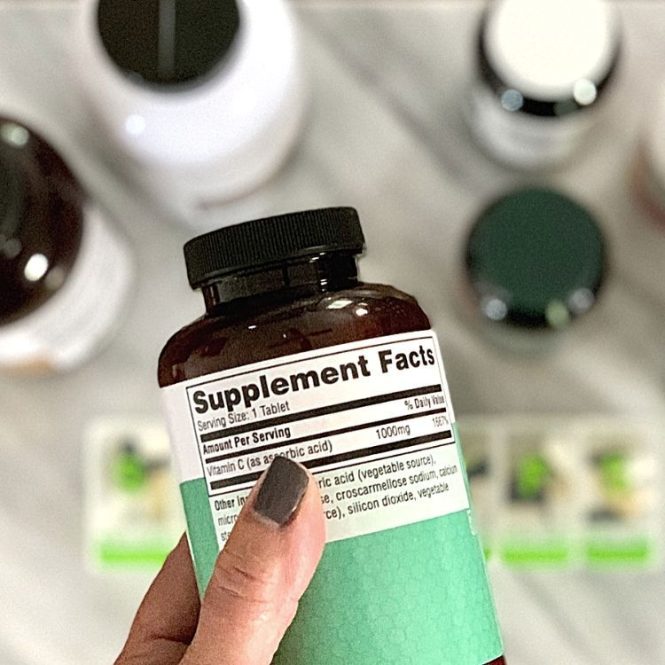

Supplement confusion overload is a common experience for many seeking to enhance their health through supplements. The sheer volume of options, varying claims, and confusing labels can make it challenging to determine which supplements are right for you and in what dosage. This comprehensive guide breaks down the complexities of supplement labels, unraveling the mystery of dosage recommendations, and equipping you with the knowledge you need to make informed decisions about your supplement choices. We’ll explore various aspects, from understanding supplement labels to effective dosage strategies. This article will walk you through the confusion, providing solutions and clarity. It will be structured into sections covering reading labels, understanding dosage recommendations, and best practices for supplement use.
Understanding Supplement Labels
Decoding Supplement Facts Panels
Supplement labels are often a minefield of ingredients, claims, and confusing information. Learning how to dissect these labels is crucial for making informed decisions. A key component of understanding supplement labels is becoming familiar with the supplement facts panel. This panel, typically found on the back or side of the packaging, provides essential information about the product’s contents. Pay close attention to the serving size and the amount of each ingredient per serving. This will help you determine the actual amount of nutrients you’re consuming. Scrutinize the ingredients list; if you have allergies or sensitivities, this is critical. Note any potentially harmful substances. Look for independent third-party certifications. Look for labels indicating purity and quality assurance. These certifications may offer an extra layer of confidence in the supplement’s safety and effectiveness.
Determining Appropriate Dosage Recommendations
Factors Influencing Dosage
Determining the correct dosage for a supplement depends on several factors. Individual needs vary greatly based on factors such as age, health status, and other medications. The manufacturer’s recommended daily dosage should serve as a starting point, but adjust as necessary under the guidance of a healthcare professional. Factors affecting dosage include your overall health, any underlying conditions, and other medications you are currently taking. Dietary intake and lifestyle choices also play a role. If you are pregnant, breastfeeding, or have specific health concerns, it’s paramount to consult your doctor before incorporating any supplements into your routine. Consulting a physician is essential to avoid potential health risks. They can assess your individual needs and recommend an appropriate dosage tailored to your unique circumstances.
Best Practices for Supplement Use
Prioritizing Safety and Effectiveness
To maximize the benefits and minimize potential risks, certain best practices should be adhered to when incorporating supplements into your routine. Prioritize reputable brands and supplements that adhere to stringent quality control standards. Look for certifications from organizations known for their commitment to product safety and purity. Consult your doctor before incorporating any new supplement into your regimen. This is particularly important for individuals with pre-existing medical conditions or those taking other medications. Always follow the manufacturer’s recommended dosage instructions meticulously. Excessive consumption of supplements can lead to adverse effects.
Common Misconceptions and Concerns
Debunking Supplement Myths
Many misconceptions surround supplements, creating confusion and hindering informed decision-making. One common misconception is that supplements can replace a balanced diet. This couldn’t be further from the truth. Supplements should be seen as complementary to a healthy lifestyle, not substitutes. Another frequent concern revolves around potential side effects. While supplements are generally considered safe when taken in appropriate dosages, adverse reactions are possible. Some supplements may interact negatively with other medications, leading to unexpected complications. It’s crucial to understand these potential interactions. Seek guidance from a healthcare professional before adding any supplements to your routine to mitigate risks.
Addressing Specific Supplement Concerns
Navigating Specific Supplement Categories
Certain supplements, such as vitamins, minerals, and herbs, require specific considerations. Understanding the roles of different vitamins and minerals in maintaining overall health is important for informed decision-making. For example, vitamin D is essential for bone health, while vitamin C plays a crucial role in immune function. Consult with a healthcare provider to ascertain your specific needs based on your individual health profile.
This section explores frequently asked questions about supplement confusion overload.
What are the primary reasons for confusion related to supplement dosages?
“A lack of clear information on supplement labels, varying recommendations from different sources, and the complexity of individual needs are major contributors to confusion related to supplement dosages.
What steps can I take to avoid supplement confusion overload?
“Prioritizing reputable sources, paying close attention to ingredient lists and dosage instructions, and seeking guidance from healthcare professionals are crucial steps in avoiding supplement confusion overload. Understanding your specific needs and consulting with healthcare professionals can help in making informed decisions about supplements and dosages.”
In conclusion, navigating the supplement landscape can be overwhelming, but understanding supplement confusion overload, deciphering labels, and dosage recommendations is achievable with the right approach. By prioritizing reputable sources, paying close attention to ingredient lists, and consulting with healthcare professionals, you can make informed decisions about your supplement regimen. Remember to always consult a healthcare professional before starting any new supplement program, especially if you have existing health conditions or are taking other medications. This ensures you’re using supplements safely and effectively. Take control of your health journey by embracing knowledge and prudence. Visit our website for more valuable resources and articles!